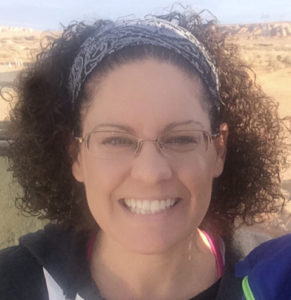 The Coconino Coalition for Children and Youth (CCC&Y) ignites collective action that creates better lives for children and families. As we transition from a difficult year, we are hoping more than ever that our community will come together.
The Coconino Coalition for Children and Youth (CCC&Y) ignites collective action that creates better lives for children and families. As we transition from a difficult year, we are hoping more than ever that our community will come together.
Childhood trauma or Adverse Childhood Experiences (ACEs) can have a large impact on the future health of individuals, and Arizona ranks higher than the national average for ACE exposure. In fact, according to the Arizona ACE Consortium, “It is estimated that nearly 70,000 children in Arizona have more than five ACEs.”
As ACE exposure goes up, the risk for negative outcomes such as substance abuse also goes up. For example, the rate of alcohol abuse jumps from a one in 69 chance to a one in six chance for individuals who have experienced seven or more Adverse Childhood Experiences. The rate of intravenous (IV) drug use is even more startling, going from a one in 480 chance to one in 30.
Thus, the effects of these ACEs sometimes play out in our justice system, in our hospitals and in our shelters. The costs of childhood trauma, both to the individual and to society, are high. It is important for us to understand that our community experiences trauma through abuse, historical injustices, and current inequities so that we can mobilize to address these issues.
Fortunately, there is so much that can be done. Why is it that two people who have had similar difficult experiences in childhood have different outcomes in adulthood? When trauma is well understood, systems of discipline are geared toward learning and developing self-regulation skills, instead of punishment. Further, practices that create safety and trust (a biological necessity) are built into programs such as education, after-school programming and neighborhood interactions. Picture a child taking a mindful moment of breathing to calm his or her nervous system instead of a situation escalated with punishment and anger caused by an ostracizing adult response.
Additionally, when we understand the role that protective factors play in healthy child development, we are compelled to do more. Examples of protective factors include: caring adult relationships; an individual’s sense of purpose and self-worth; compassionate communities; and, a positive connection to school. How often do we catch children being good, celebrate incremental milestones or think of a strong relationship as a behavior management strategy?
When it comes to systemic justice and equity issues, child abuse, substance misuse or a host of other physical and mental health concerns, the needs of our community can seem overwhelming. These are complex issues. However, when we bring it back into our local communities with neighbors, friends and family, action steps feel much more doable. Here are some ideas that can make a difference:
Be aware of your friends, neighbors and your children’s friends. Concerned community members are the ones who provide the strength and support that help pull struggling families through difficult times. Offering to babysit or providing a meal strengthens families in ways that you may never know. Child abuse often happens because of a stressor, and this is where kind community members make a huge difference.
Become educated and aware. Attend our live or recorded webinars on a range of topics and from many different experts in the field. You might even choose to become a member of the Coalition in support of our mission or receive updates through our newsletter to stay informed. We are eliminating childhood trauma and inequity by building an inclusive movement of people dedicated to transforming and healing our communities. Through leadership, education and advocacy, we are reconnecting children and families to the greater community and their own potential. Visit coconinokids.org to learn more.
Reach out to local non-profits that are doing work you believe in and ask how you can get involved. Our community is rich with our partner organizations that are doing important and meaningful work.
The Coconino Coalition for Children & Youth imagines a world where every person lives in peace and is supported by a thriving, resilient community. Let us remember that we never really know the story of what has happened to our neighbor. The more goodness we are contributing daily, the better for us all. FBN
By Virginia Watahomigie
Virginia Watahomigie is the executive director of the Coconino Coalition for Children & Youth located at 2625 N. King St., in Flagstaff. She can be reached at virginia@coconinokids.org.





